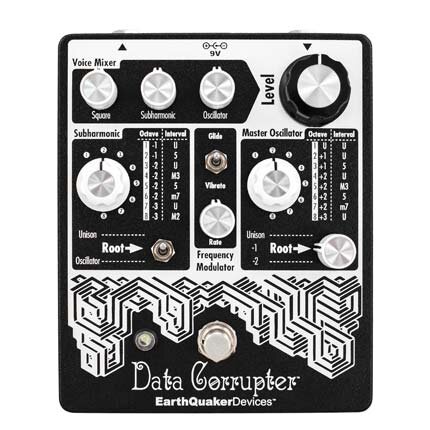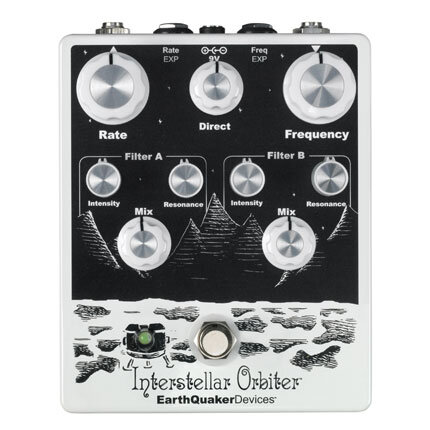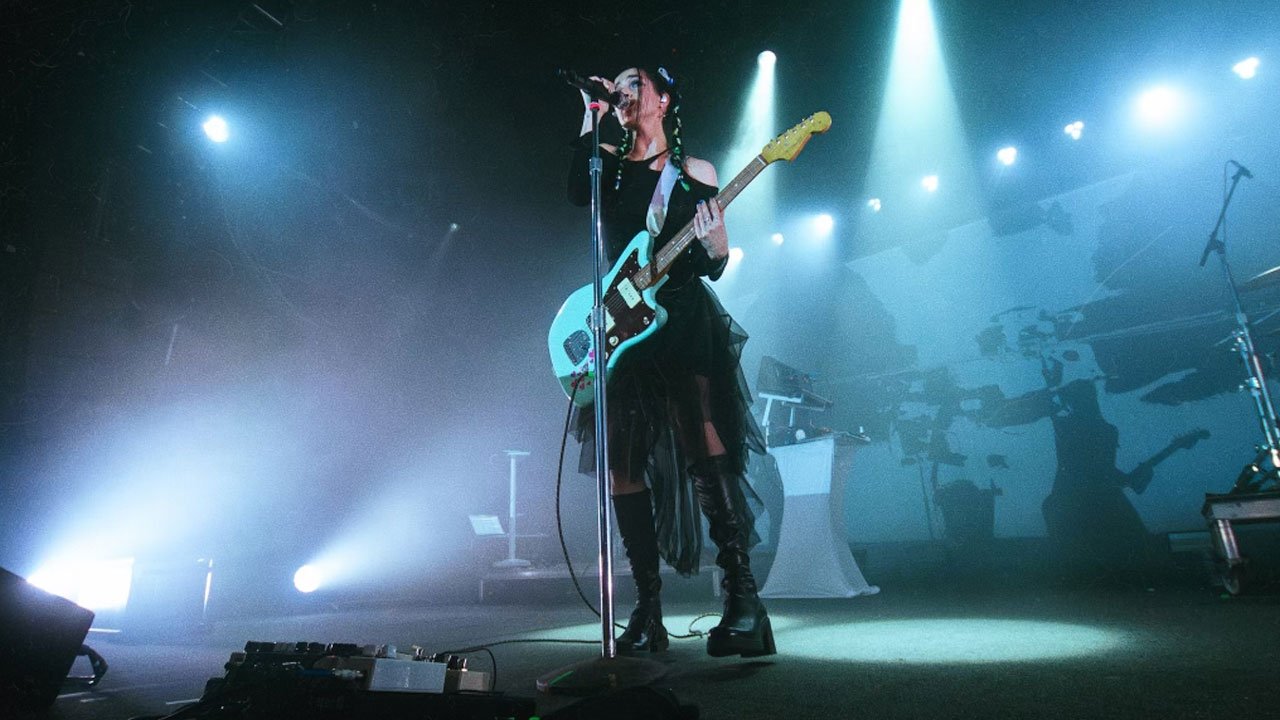Talk About Your Junk with Jonathan Pearce of The Beths
Malcolm X Abram
The Beths are one of New Zealand’s finest “guitar bands” and have been garnering international attention and fans from the melodic strength and catchy tunes of their 2016 debut EP Warm Blood and subsequent full-length albums, Future Me Hates Me from 2018 and their latest, the critically well-received Jump Rope Gazers released in the summer of 2020.
As with nearly everyone else on the planet, The Beths plans for 2020 were completely dashed by the global pandemic. But, the quartet of singer-songwriter-guitarist Elizabeth Stokes, guitarist-producer Jonathan Pearce, bassist Benjamin Sinclair, and drummer Tristan Deck still managed to spread the word and the music with several live-streamed events dubbed “Live From House.”
Now The Beths are back in action with a new concert film and album, Auckland, New Zealand, 2020 and they’ll be touring the U.S. in the Winter and Europe in the Spring of 2022. Jonathan Pearce was kind enough to show EQD some of his junk. And here he is talking by email a bit more about his junk, his recording methods, and what he’d ask of the Gear Genie.
EarthQuaker Devices: When did you first pick up the guitar, and which guitarists and musicians inspired you to study jazz at the University of Auckland? How did you go from “jazz guitar guy” to “indie-pop guitar guy?” And what’s your favorite jazz tune to play?
Jonathan Pearce: I first picked up guitar in high school, at about 14 or 15. I had been playing piano for quite a few years, and my jazz study was done later on piano, so I’ve never been a “jazz guitar guy.” Guitar was sacrosanct to rock and pop music for me throughout my studies. I never really tried to learn to play jazz on guitar. I found studying music challenging, emotionally and creatively, and I really valued having a little musical corner I could go to and find my own way, develop my own ideas and just ignore the rigor of academic music study altogether.
EQD: If all goes well, The Beths will be spending about three months away from home touring the UK and the States pretty intensely. Is there any specific gear you take or leave at home for these extended tours instead of some of the gear you might pack on a quick jaunt around NZ?
JP: Yeah, quite often we have time between tours when it’s not really worth flying all the way back home to New Zealand, so we’ll basecamp somewhere. Our favourite spot in the world for this is in Spain. There’s a place we like to go near Valencia which is the perfect cheap retreat. I’ll take gear with me to set up a really basic remote studio for mixing or demoing. A 2 channel audio interface, some good studio headphones, a couple of tiny Line Audio OM1 omni microphones, and a pair of IK Multimedia iLoud Micro Monitors, which are quite shockingly good for their size. The whole rig is just a bit larger than a shoebox in my suitcase.
Sadly, when we’re going overseas, we can’t take our made-in-New-Zealand vintage valve amps with us, which we like to use here at home. Liz often plays through a Jansen amp here, and I have a Fountain. Ben has a Holden bass amp head that is fantastic, but no way is it flightworthy.
EQD: As someone who often uses plug-ins for loudness and distortion, how do you decide when a pedal will give you the effect you want when tracking versus adding the plugins later?
JP: The most important thing is the feeling of playing the guitar, the distortion pedal, the echo effect, and the volume the amp is set to, which is, in sum, the instrument. Another fork that comes up all the time for me is whether the part is in stereo. So if the effect isn’t multi-channel, it may need to be upstream of whatever is creating the stereo effect, if that is possible to do. Or, maybe the effect needs to be before a tremolo to sound right or before an echo. I try to have the sound in my mind’s ear and work towards that, and often there’s a logic to it, and at a certain point, I find I’ve done all I can in the world of volts and waves. But I know there are more tools I can use downstream.
EQD: You are a fan of the Data Corrupter, which is a pretty noisy and aggressive stompbox. How have you used it in The Beth’s music?
JP: We have used it for the obvious, like abrasive leads and solos, as well as long-held organ-like tones and sound-design squawks and screams in support of a climactic freak-out. I do love that pedal; it’s both limited in its abilities and capable of making and expressing a wide scope of sounds and ideas. It puts a smile on your face when you play it, and it’s so un-subtle that anyone listening will notice and probably smile too. I rarely feel the need to add more pedals after it, and it’s usually pointless to put pedals before it. What goes in does not necessarily come out!
EQD: You also used the Interstellar Orbiter, which has confused the hell out of many people. Do you like pedals that are a bit of a challenge or that can coax bizarre sounds from standard instruments?
JP: That pedal slots into an uncanny place where you don’t know quite what you’re hearing. I don’t feel that The Beths are an experimental band, but I like to see what I can get away with, and I think this is a good example; it’s familiar, but it isn’t quite phaser or flanger. We have pretty strict rules about what being a ‘guitar’ band means, so devices that expand our palette without feeling like they break the rules can be a creative treasure chest.
EQD: You record primarily in the digital realm. Are there specific situations when breaking out the old tape machine is just more desirable? What does recording on tape add to the overall sound you can’t get from plopping one of the many “tape emulation” plugins on the mix bus?
JP: I really like using the tape machine, but I almost never do that thing - run the whole mix through the tape machine and back. I find I want the tape effect heavily on bass, and then a little less so on drums, just rounding off the dynamics a little bit there, and don’t really want it on guitars at all - a distorted guitar will probably enjoy all the dynamics and frequency extension you can give it. Sometimes the tape machine can kind of widen the mix a little, which is useful, though it’s probably because the azimuth of the record and read heads are a little off! As I said, I like using it, and that’s probably the biggest thing it brings, fun and hype and focus. The same sound might take me a lot of pretty un-fun tweaking of plugins to achieve. I do both, the fun and the un-fun. I’m not a purist.
EQD: Do you consider yourself a gear collector or accumulator? Are you one of those folks who scours pawn shops and local music stores while on tour or obsessively checks eBay and Gbase?
JP: I am a bit of a gear collector, but I’ve set myself pretty strict rules. Gear has to last a long, long time, it has to be creatively stimulating, and if it has a marginal effect which I have to A/B many times to hear (microphone preamps, summing/colour-boxes, outboard vs. plugin compressors…) then it has a very low value to me. I make an exception for microphones, which I get so much joy from. Guitar pedals represent about the maximum bang for buck of any gear purchase, according to my rules.
EQD: Is there any piece of dream gear you covet? ‘59 Gold Top? A massive 48 track Neve console? If a gear genie appeared beside you at breakfast and asked you to make a gear wish, what would it be?
JP: My wish from the gear genie would be for a wonderful sounding, generously proportioned recording room, fit for a small orchestra or large jazz band, and a snug, acoustically designed (and air-conditioned!) control room/production suite. I always wish I had more space, more air, more flexibility, and a more engaging and disarming ambiance. I would love to be able to invite more people into the room too, and for the recordings to have more of a live performance energy.
Photo by Frances Carter
EQD: What do you enjoy about recording and producing other bands in your studio, and if asked, would you produce a band in a more traditional studio?
JP: I like knowing the way to get the sound people are after, and it’s really important to me to be super fast and professional. And then being able to bring something unexpected that spurs things on, I have learned to do this and keep learning more and more about how to do these things in my own studio. I have produced one album project in a trad studio, and I would love to do so again, but I would have my limitations. Perhaps they would be creatively stimulating!
EQD: You mention that you like to keep things flowing and be sensitive to what the musicians need when recording. Has that philosophy ever required you to change your techniques when recording someone other than your band?
JP: Yes, every session and minute to minute. The most challenging example of this happens when you record someone singing. One singer might only expect to do a small number of takes. You have to get the capture perfect from the first note and any advice needs to be specific and confident. Another will explore a song over a couple of hours, and expect you to go on the journey with them. Some people genuinely perform their best when left to themselves. In fact, I think we all have a little of that in us, and it’s important to know when you’re not helping.
EQD: What’s your all-time favorite New Zealand bird, and are there any birds in other countries you’ve come across on tour or on holiday that are almost as cool?
JP: Haha, well New Zealand has so many great birds I find it really hard to pick a favourite. Today it’s the humble Tui - a fairly common bird here in Auckland, a little larger than a blackbird, but with iridescent blue, green, and bronze plumage and a wildly varied, chaotic yet deeply musical song. The vultures soaring in the mountains inland of Valencia, Spain are pretty special. The big barn owls and, of course, eagles of the USA are creatures to be respected.
Catch The Beths on tour starting this month through April 2022 in New Zealand, Australia, the US, Canada and Europe. Tour dates listed here. If you can’t wait for them to come to your continent, then check out the The Beths new live album and film Auckland, New Zealand 2020.
Malcolm X Abram is a recovering reporter and music writer and a proud 40 year guitar noodler. He lives, works and plays in the bucolic dreamland of Akron, Ohio in an old house with two dogs who don’t really like each other and way too many spiders.









